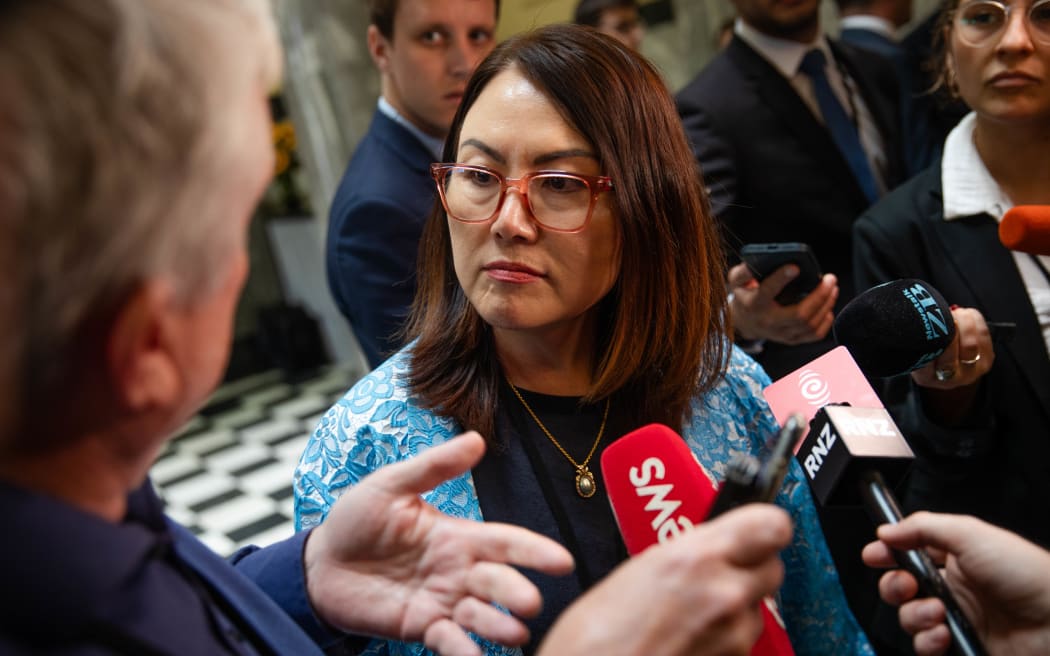The relentless campaign promoting the inevitability of a direct war with Russia is proceeding without challenge. That does not mean that war could erupt at any moment, or it could never happen. First, war is not based on a timetable. Second, war has no deterministic quality of any sort—it can be avoided. Third, but most important, war is contingent upon deliberation and subsequent decision—without decision, there is no war. For the record, neither the United States nor Russia has ever publically declared that they intend to go to war at some point in the future. So far, we only hear dire threats flying around.
When American think tanks, opinion-makers, and the omnipresent “experts” talk about going to war with Russia, they often disclose the inner workings of the system. Of importance are the ideological processes used to implement agendas and related tactics. World domination themes (our leadership, our national interests, our allies, free world, our values, our democracy, our resolve, state sponsor of terrorism, our sanctions, defending liberty, our this and our that, and all that empty jargon) appear at every turn.
Processes need avenues to formulate. The climax is reached when those avenues become both overlapped and interconnected. As a result, propaganda, fake diplomacy, false reporting, exaggeration, naked lies, vilification, accusation, crocodile tears for Ukraine, and military “assessments” move in unison with the plans of U.S. ruling circles.
As stated early on, since the dismantlement of the Soviet Union, the sole remaining superpower (as the United States likes to call itself) has been obsessively pursuing the goal for world control by any means—including war. The countless wars that the United States has been launching against any country that actively dares pursuing its own policie are testimony. War, of course, is easy on paper. Among powerful nuclear states, war is terra incognita. This fact alone, confirms the reasons why the United States, Britain, and other imperialist states treat the project for war with Russia in theatrical ways while depending on rhetorical bravados, sanctions, seizing of assets, and the arming of Ukraine to elicit concessions.
Now that Russia’s limited military operation in Ukraine has transformed into a wider war involving NATO countries indirectly, what comes next? First, that transformation begs an old-new argument. Do wars have any validity? Posing this argument brings to mind the anti-colonialist wars in the period 1950-1975. Second, although the scope of Russia’s intervention in Ukraine differs from those wars, the basics are the same. Explanation: the struggle for independence, sovereignty, and security can take many forms and transcends time and circumstances. This applies to Russia to a tee. How so?
Discussion: the charge that the anti-colonialist struggle posed challenge to and imperiled peace (as Petra Goedde opined, retrospectively, in her book, The Politics of Peace: A Global Cold War History) is bogus. Discussion: what peace are we debating? Is it peace of mind for occupiers, colonizers, and imperialists or is it pacification by sanctions, blockades, and death and destruction to the occupied and the threatened? By analogy, the argument that Russia should not have disturbed the peace with its intervention in Ukraine is bogus too. For instance, considering that Ukraine has become a powerful American tool to destabilize and attack Russia, was it feasible for Russia to assure its survival from U.S. nuclear encirclement without intervening in Ukraine?
About the principle of armed struggle against all forms of neocolonialism and imperialism: how if not by war could have Algeria, Viet Nam (before U.S. intervention), and Angola, for examples, ended French and Portuguese colonialisms in their respective lands? About Viet Nam: does anyone think that the United States would have left South Viet Nam without being defeated in battle first? Further, because the U.S. and vassals are effectively waging war on Russia while pretending to be defending peace and principles, should Russia smile and wave its arms in jubilation?
The wider argument: The United States and satellites couch their wars under the rubric, “just and unjust wars”. They deem their wars just and wars by others unjust. U.S. think tanks go further by invoking the concept of legality as if the lawless hyper‑empire is the guardian and depositary of legality. On such think tank is the Brookings Institution, the voice of Zionist academia. The hyper-imperialist Michael O’Hanlon (director of research and senior fellow of the foreign policy program at Brookings) wrote a specious article full with inaccuracies and distorted facts on the American invasion of Iraq, and named it as such: “Why the War Wasn’t Illegal”.
O’Hanlon starts his article as follows, “United Nations Secretary General Kofi Annan was wrong in recently terming the U.S.-led invasion of Iraq “illegal”. So, now we know that the warmongering Zionist O’Hanlon thinks that he knows what is right and what is wrong! Aside from that, not only did he distort facts, but also erased the entire body of evidence confirming that Iraq had been abiding by all so-called U.N. resolutions on the matter of disarmament.
Setting the Record Straight on War and Peace
At present, only one concept can pass the test of rationality thus it is irrefutable. Wars can be either legitimate or illegitimate based on the tenets of the Natural Law, not the laws of the imperialist west and its institutions. The statement leads to an implacable consequence that could never be ignored or dismissed. Opposing legitimate wars (e.g., Russia’s in Ukraine, and the Palestine people resistance’s against the Zionist settler state of Israel, or the improbable but potential war by China for Taiwan) just because we advocate peace is antithetical to the anti-imperialist cause.
For one, wars fought to defend national independence from imperialist or occupying powers are an exclusive category. Consequently, the implication of selling antiwar agendas to aggressed, squeezed, occupied, or threatened states in the name of western-defined peace and goodwill could not be more obvious. It means that the collective chauvinist west would continue trampling on the natural rights of all nations resisting subjugation. Seeing the magnitude of restrictions, sanctions, and destruction heaped upon them, those nations are left with no choice but to resist and fight back to preserve their very existence.
In sum, and as far as it concerns Ukraine, the Middle East, South Asia, and Africa, it does not matter if the U.S. and European imperialisms define their ongoing wars in any context. The fact remains, no matter what contexts and laws they invent in support of their aims, the targeted countries would not acknowledge them—effectively they have no validity. The implication resulting from rejecting western rules of domination is unambiguous. Legitimate states (not installed by colonialist powers) threatened by marauding imperialists have every right to resort to any form of resistance to preserve their security, improve social welfare, and defend their freedom from the fascist clique that is ruling the world today.
Discussion
The western intelligentsia obliquely calls it the “Suez Crisis”. It wasn’t. By all attributes, it was a standard colonialist war. Briefly, Britain and France (in collusion with the then 8-year old Zionist settler state (Israel) attacked Egypt in July 1956 because it nationalized the Suez Canal Company—English, French, and other European shareholders owned the operating enterprise; Egypt owned the waterway itself. Remark: during that time, no one suggested that war with Britain, France, and Israel had become inevitable because of their war against Egypt.
When the United States intervened in Somalia, then invaded and occupied Afghanistan, Iraq, and then attacked Libya, Syria, and Yemen, no one suggested that going to war with the United States is inevitable to stop its Zionist wars. Pay attention: but when Russia intervened in Ukraine, the uproar reached the moon. The United States and major western powers repeatedly spoke of the inevitability of war with Russia. Are we missing something?
These few facts are enough to corroborate an important assertion. The notion positing the inevitability of war with this or that country is a U.S. stratagem to intimidate all independent nations. Manifest intent: to enforce or induce compliance under the threat of violence. At this stage, do we need to prove that the U.S. obsession for war with Russia goes beyond “Russophobia”, “Russophrenia”, and similar hazy terms? Said obsession is now an ideologically and objectively developed strategic purpose meant as a mechanism to impose the American order on Russia.
Observation: the old paradigm that governed the relation between capitalist America and communist Russia fell in disuse today. Although vanished in its old form, that paradigm (U.S. ideological enmity toward Russia) morphed into something new: strategic hostility. The core of this new anti-Russian stance is not the intervention in Ukraine, but a set of revamped U.S. geostrategic objectives. Accordingly, something very big has pushed the U.S. into chaotic frenzy. This cannot be but the U.S. certainty that Russia had come out into the open, re-asserted its role on the international arena, and challenged the American plan for world domination.
Former chairman of the Joint Chiefs of Staff, Mark Milley, stated the fixed purpose of the American empire unequivocally. He declared, “The United States must remain the most powerful nation on Earth if peace is to continue between the U.S., China, and Russia.” In other words, the United States is opposing to maintaining peace—meaning it would go to war—with Russia and China should it conclude that either country or both pose threat to its military domination over the planet. By stating that, Milley has implicitly confirmed that war with Russia and China is inevitable under the condition he outlined.
The British Sky News of Rupert Murdock is a gigantic factory of lies, tabloid news, and journalistic prostitution. Armed with such “credentials”, Sky News joins the American crowds in discussing the inevitability of war with Russia. Pretending serious journalism, the online tabloid asks, “Are we heading for World War Three?”
Sky News then provides “verdicts” by its so-called panel of experts. Not surprising was that such experts recycled superficial opinions spread by the American media. Of interest, is the view presented by Sky News’ “military analysist”, Simon Diggins. Using shallow “analysis” and language, Diggins reproduced simplistic clichés taken from Fox News of Murdoch and from worthless stories taken from Microsoft Network (MSN) of Bill Gates.
I’m not going to comment on Diggins’ quote (below) except for putting the “important” stuff in Italics. Purpose: to stress that the italicized text is nearly identical to the phraseology and lingo employed by American imperialists and Zionists in their daily shows. He writes,
In one sense, we are always in a ‘pre-war’ world, as wars can start from miscalculation, from hubris, or misunderstandings as well as deliberate design.
However, the last months have seen some loud rumblings, and the sense that the inevitable tensions of a complex world may only be resolvable by war.
Nothing is inevitable, but the Ukraine invasion in particular has shown that Russia sees war as an instrument of policy, as a tool to change the world order in its favour, and not simply as a means of defence.”
China likewise seeks reunification with Taiwan, and Iran, in its region, wants its ‘place in the sun’.
Josep Borrell, European Union foreign policy chief, never ceases to amaze. His colonialist mindset is closed for reformation, and the bizarre statements he often makes keep getting worse from one to the next. Claiming that Russian influence causing dilemma in Africa’s Sahel, he stated,
Russia’s “very strong” influence in Ouagadougou, Bamako, and Niamey “creates a new geopolitical configuration” in the Sahel. France has had to leave; we have left our military mission – an incipient military mission – in Niger. We have now been invited to abandon Niger with our civilian mission,” he said, adding that EU member states “will have to decide if they want to stay” and extend Mali’s EUTM [European Union Trade Mark], which is set to expire in May. [Italics added]
Comment: Can Borrell explain to us why Russia’s influence on Africa’s Sahel is bad, but the European influence on the same is good? Another issue: does he think that war with Russia has become inevitable because Russia is breaking the “sacred” European colonialist legacy in Africa?
Commenting on article written by the anti-Russian British journalist Gideon Rachman (Financial Times: “How to stop a war between America and China“), American economist Scott B. Sumner made this important remark. He said, “Unfortunately, the article doesn’t tell us how to stop a war between the US and China. …” In fact, all what Rachman tried to do is upholding the U.S. notion of deterrence against China’s legitimate claims on Taiwan. (Before I forget, Rachman won a few prizes and awards for his superficial analyses.)
The Zionist-controlled publication of The Atlantic published an article written by Eric Schmidt and Robert O. Work. The title is intriguing: “How to Stop the Next World War.” You would expect a convincing proposal, or at least a generic idea as how to stop the U.S. mad race for war with everyone. After attentively reading the article, I realized that the authors had already “suggested” how to stop the next war in the subtitle: “A strategy to restore America’s military deterrence”. So, now we know the answer to their question: in order to stop the next world war, the United States should not engage in negotiation or something like that, but it must protect and expand its imperialistic spheres of influence through increased military deterrence.
Comment: U.S. and British imperialist and Zionists are not in the business of stopping wars. On the contrary, they incite for wars and justify them. Their favorite methods are open belligerency and swamping verbosity. In both cases (Rachman’s article and the Atlantic piece), the march toward the inevitable wars with Russia and China was not only hypothesized and marketed, but also rationalized to give the impression of unarguable conclusion.
To sum it up, western governments (especially the U.S. government) and legions of war promotors have been tirelessly theorizing on the inevitability of war with Russia. Conspicuously absent from their coordinated scripts, however, is the postscript—the aftermath of war. That absence is neither lapsus nor negligence. It is a calculated strategy to advance the abstract notion of war without addressing its concrete consequences on their societies.
U.S. post-WWII foreign and domestic policies need no introduction. Summary: in building consensus and silence for its wars around the world, the imperialist state relied on indoctrination, concealment, deception, and propaganda. Aside from being the pillars of control, these four categories form a specialized school of thought. Accordingly, those who govern the direction of domestic affairs (finance, Congress, weapons manufacturing, legislation, executive orders, etc.) will also govern the conduct of foreign policy and wars.
What did the system do to insure that the American people remain passive toward its wars? It relied on a formidable psychological tool: desensitization. Desensitization such as this leads to emotional inebriation. For some (without quantifying), this type of emotions is rewarding whereby the scenes of mass destruction act as psychedelic narcotic. Arguably, the images of victory over a designated enemy are the experience.
Desensitization has another function. In the hands of warmongers and war planners, it is a contraption to eradicate critical thinking vis-à-vis the plethora of factors and actors pushing for war. The odd thing is that visualizing the destruction of enemy while not contemplating own destruction by retaliatory strikes is not normal and raises myriad questions. For instance, could this behavior equate to sedation? Materially though, it lays the emotional foundation for the acceptance of war by protracted induction.
Consider the Newsweek article, “Nuclear Bomb Map Shows Impact if Biden’s New Weapon Dropped on Russia,” published on November 3, 2023. The Zionist-imperialist weekly reports on “A nuclear bomb being developed by the Biden administration could wreak havoc in Moscow’. Newsweek broadcasts the bomb’s destructiveness by including a visualization map made by NUKEMAP. Newsweek continues by saying that with its “360 kilotons TNT, the bomb is 24 times the explosive power of the 15-kiloton bomb that the U.S. dropped on Hiroshima, Japan, during World War II.”.
Newsweek editors are cynically leaving to the readers the burden of calculating the human cost to Russia. In the case of Hiroshima, the Bulletin of the Atomic Scientists put the number of dead and injured between (200,000 and 340,000); the average therefore is 270,000. Now, 270,000 x 24 = 6,480,000. Effectively, therefore, the United States is telling Russia that it can and has all means to kill or injure about 6.5 million Russians in one single strike. [Note: those will die— consequent to radiation and other causes related to the blast—in the successive six months to the detonation are not included.] No doubt, the U.S. wants to intimidate Russia as if this is incapable of returning the gift of death to selected U.S. cities.
Pay attention: Newsweek did not give details on who divulged the news about this new bomb. Skepticism is warranted; for example, the whole thing could be fiction to scare Russia. But this is unimportant. At this point, we need to learn how the process of indoctrination to war works.
To start, we know that NUKEMAP was created by Alex Wellerstein. A question: did the Pentagon ask Alex Wellerstein to talk about the 360 kiloton bomb, or did Wellerstein, knowing about it from other sources, decide to open the secret? This hypothesis cannot be true—it is unfathomable that the Pentagon allows its most secret weapons to be known to the enemy. Most likely, the Pentagon ordered the divulgence of information to intimidate Russia. Either way, this whole episode casts light on the multi-pronged interactions between the war apparatuses of the United States and its civilian contributors like Wellerstein.
Expanded Discussion
First, NUKEMAP is visualization software designed to help those who covet seeing real nuclear and missile wars. Second, the Pentagon and Wellerstein well know that the program can be used effectively to garner support for war by prospecting a “joyous” outcome, which is visualizing the incineration of Moscow.
Now, could it be that the Pentagon is offering Wellerstein’s visualization to the public as a form of ideological catharsis to release their “repressed violent emotions”? Can this be true? It implies that the American people at large are addicted to visceral violence. But violence, as philosophy and practice, is acquired. In addition, no nation is uniform in its feelings and reactions to wars initiated by their country. With regard to the U.S. wars on foreign nations in the name of “security” and nominal values, indoctrination targeting the American people has worked on two levels: (a) countless Americans see their foreign wars as patriotic, or (b) they are indifferent to the magnitude of death, destruction, and consequences that their country has been inflicting on foreign nations.
Pay attention: Wellerstein did not create NUKEMAP to warn against nuclear annihilation or to bring attention to its horrors. His article NUKEMAP is explicit. Not even once does he refer to the consequences of his concept. His focus was on the praise of his software and the awards it obtained.
Remarks
- First, Newsweek says that the Pentagon is developing a B61-13 nuclear device to give Biden options to hit large area military target. We understand, therefore, that the Pentagon is actually instigating Biden to consider the option for hitting Russia if he and his associates choose to do so.
- Second: in turn, Newsweek takes upon itself the responsibility to send a message to Russia by showing what this bomb can do by publishing a simulation by NUKEMAP. Meaning, Newsweek is threating Russia directly on behalf of Biden—as if it is seeking an irrational Russian response to the U.S. visual provocation.
- Third: of relevance to the process of desensitization is what Alex Wellerstein has done. He gave online users a tool that “Lets you to detonate nuclear weapons over an interactive map of the world”. In a sense, he created an online army of volunteers ready to push the button and wait to see the simulated cataclysmic result. To close, those who love the idea of war and the annihilation of their perceived enemy are now being geared to the idea of vaporizing Russia, China, and any other nation that stands in the U.S. trajectory for world domination.
To summarize, because the ideological devotion to war with Russia has become a vast cult with unpredictable consequences, how many still remember Russell J. Oakes’ book, The Day After, and how many still recall the eponymous adapted film starring Jason Robards?
Next: Part 5
The post
Imperialism and Anti-Imperialism Collide in Ukraine (Part 4) first appeared on
Dissident Voice.
This post was originally published on Dissident Voice.


















